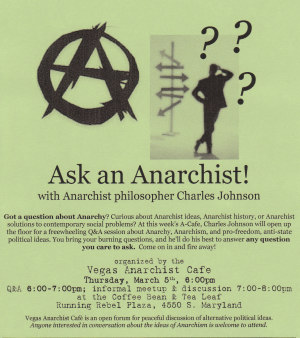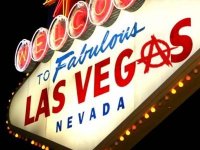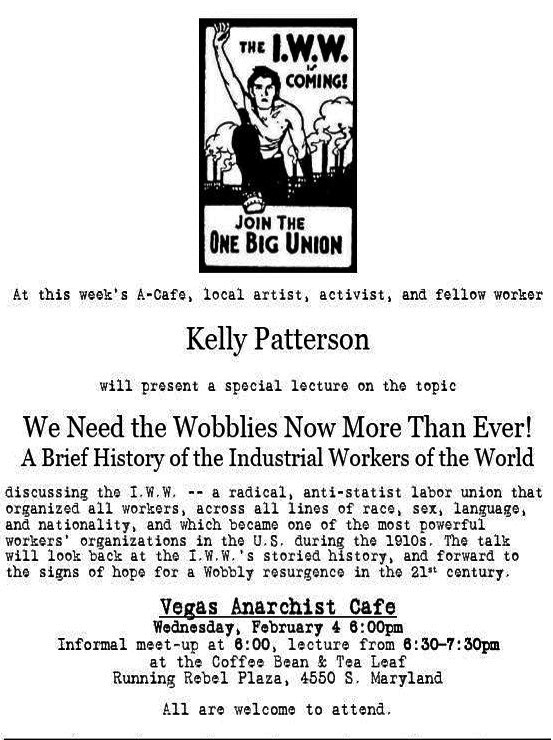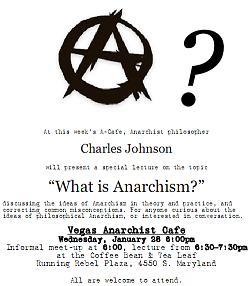When left-libertarians argue with more conventionally pro-capitalist libertarians about economics, one of the issues that often comes up is government control over roads, and the ways in which state and federal government’s control over roads has acted as a large subsidy for economic centralization and national-scale production and distribution networks (and thus, to large-scale big box
retailers, like Wal-Mart or Best Buy, dependent on the crafty arrangement of large-scale cross-country shipping as a basic part of their business model). People who have a problem with this analysis sometimes try to dispute it by arguing that government roads aren’t actually subsidized — that heavy users of government roads are actually getting something that roughly approximates a freed-market outcome, because users of government roads pay for the roads they get, in proportion to how heavily they use them, because government roads are funded by gasoline taxes, tire taxes, and government-imposed licensing fees, which all go up in cost more or less proportionally to increases in use of government roads. Thus (the argument goes), funding for government roads is more like a fee-for-service transaction on a freed market than it’s like a classic case of government subsidies. But in fact, this argument is completely bogus, for at least three reasons.
The first reason is that, contrary to popular misconception, government-imposed gasoline taxes and user fees
on road users do not actually fully fund the costs of government road-building and maintenance; government funding of roads actually includes a substantial subsidy extracted from taxpayers independently of their usage of the roads. Government budgets for road building and maintenance in the US draw from general funds as well as from earmarked gas taxes and user fees
, and those budgets are subsidized by state, local, and federal government to the tune of about 20–70 cents per gallon of gasoline expended.
The second reason, which ought to be obvious to libertarians given how much we have talked about the use of eminent domain over the past few years, is that government road-building is substantially subsidized by the fact that government can — and routinely does — use the power of eminent domain to seize large, contiguous stretches of land for road building at arbitrarily fixed rates below what the land-owners could have demanded in a free market land sale. Even if it were the case (as it is not) that usage-based levies like gasoline taxes and government licensing fees were enough to cover the budget for government road building and maintenance, that budget has already had a massive, unmentioned government subsidy factored into it due to the use of eminent domain.
The third reason is that a freed market is able to match the supply for roads to the demand at something like the appropriate cost not only because people pay for the roads in proportion to their use of the roads, but also because the prices for road use are set by negotiations between road users and road builders in a competitive market, and because the ownership and management patterns of roads are determined by patterns of free economic decisions to buy, sell, lease, develop, abandon, reclaim, and subdivide land. Freed markets aren’t just a matter of paying for what you get (as important as that is); they also have to do with the freedom to get what you get by alternative means, and with patterns of ownership and control based on consensual negotiation rather than on force. No matter how roads are funded, there is no way to approximate freed-market results with government monopoly on sales or politically-determined allocation of ownership. (Again, this is something that ought to be obvious; it is just the socialist calculation problem applied to the market for road transportation.)
And roads funded by government-imposed gasoline taxes will always be either noncompetitive or subsidized: if there were any significant private roads competing with roads funded by government gasoline taxes, the taxes on the gasoline that drivers burn on those roads become a subsidy to the government-controlled roads. The more users use the non-government roads, the more they would be subsidizing the government roads.
Further, the ownership and management patterns of government roads are determined by electoral horse-trading and arbitrary political jurisdictions, not by free economic actors. As a result, decisions about what roads to build, how to direct funds to those roads, how to price the use of those roads, etc. are typically made by state or federal legislatures, or state or federal executive bureaus. Governments are far more responsive to political than to economic pressure; governments generally will not, or cannot, sell off roads or spin off control over local roads to the people who use them most and can best manage them; state and federal governments exercise centralized control over far larger fiefs than it would ever be possible or profitable to amass on a free market. Thus, for example, because the building and maintenance of roads in Las Vegas is controlled, not by free market actors in Las Vegas, but rather by the Nevada state government, we have Las Vegas drivers paying in 70% of the state’s gas taxes and getting back only 61% of the state’s spending on roads (which is an increase over the 2003–07 average of 53%) — meaning that we are forced to turn tens of millions of dollars over to subsidizing highway building and maintenance in the rest of Nevada. Here’s NDOT’s reasoning as to why we should get stuck with the bill:
If NDOT based its road building program strictly on usage, [NDOT assistant director of engineering Kent] Cooper
said, then no new highways would be built outside of Clark County.
He noted that freeways in Las Vegas attract 150,000 to more than
200,000 vehicles a day. No other area in the state has such high use.
— Ed Vogel, Las Vegas Review-Journal (2008-11-26): Southern Nevadans get less bang for their road tax buck
Now, maybe Kent Cooper thinks that it is just and wise to force Las Vegas drivers to pay tens of millions of dollars in subsidies so that NDOT can build expensive roads that nobody wants to use.
Maybe he’s right about that, and maybe he’s wrong. But whatever the case may be, the only way to get freed market results in roads is by freeing the market. Under government ownership, government funding, and government control, roads are subsidized by taxes that are levied independently of road usage, built using a subsidy created by forced seizure of land, and users of high-volume local roads are typically forced to subsidize expensive, long-distance cross-country roads that they aren’t using. This kind of allocation of resources for long-distance, non-local highways — which further distorts an already subsidy-distorted system by distorting the flow of money within that system away from the heavily-used local roads and into the high-cost, high maintenance long-distance roads, can certainly not be called any kind of approximation of a freed market in roads.



